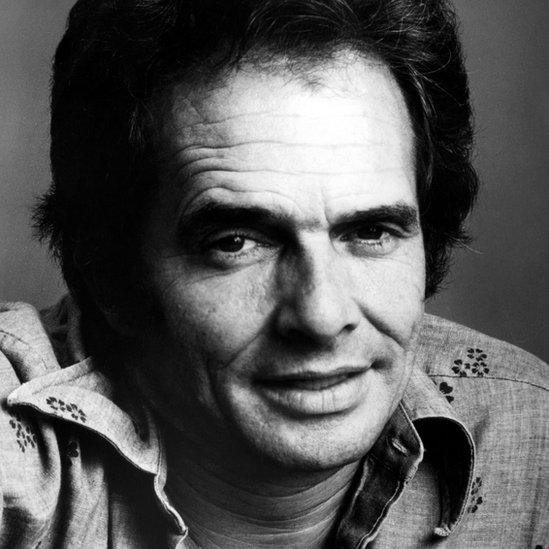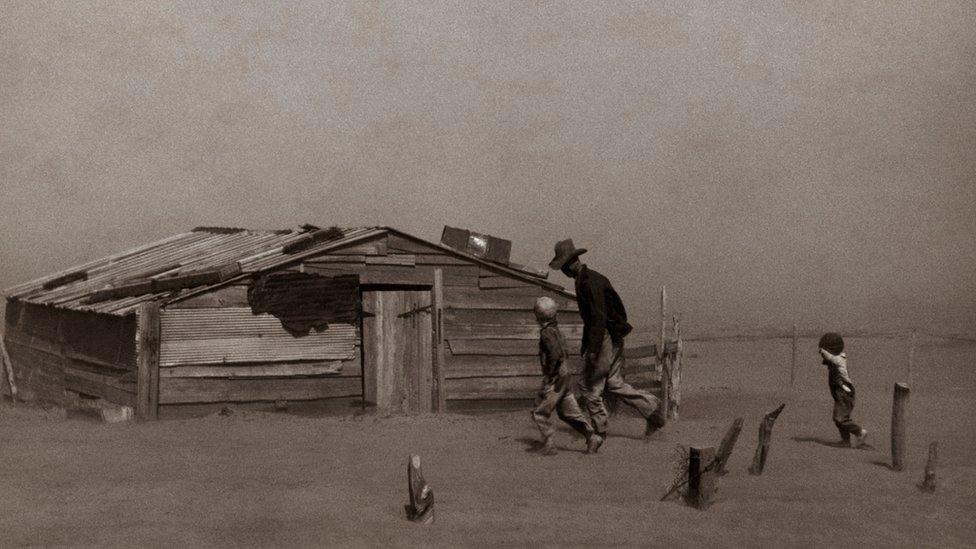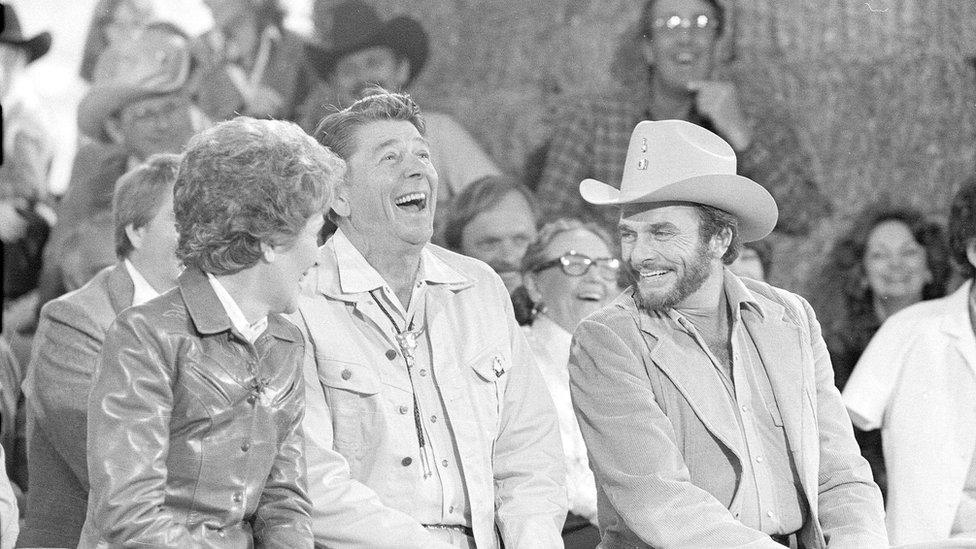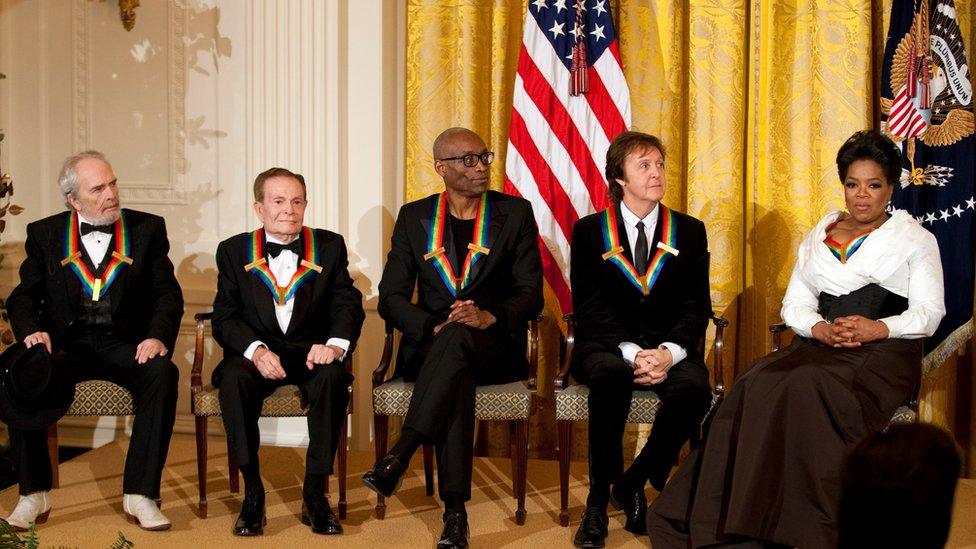Obituary: Merle Haggard
- Published

Merle Haggard: quintessential country music singer
With his rich baritone voice, and songs that drew from his experience of poverty, heartache and restlessness, Merle Haggard was one of country music's most influential artists.
His style influenced a generation of modern singers such as George Strait, Randy Travis, Alan Jackson and Vince Gill to name but a few.
Though he never enjoyed the same pop success as such other country greats as Willie Nelson and Johnny Cash, Merle Haggard's success in the country charts was staggering.
Only country singers Conway Twitty and George Strait have had more number one hits.
Haggard's songs were the staple of honky-tonk juke boxes in the south. They echoed the aspirations and struggles of the blue-collar worker.
In the words of critic Bob Allen, Haggard, above all, succeeded in "capturing in metaphor the bleary-eyed angst and dark revelations of the soul that lie beyond the second six-pack".
In the 1970s, he was the scourge of liberal America with songs like Okie from Muskogee, which poked fun at hippies and the anti Vietnam war movement, and the deeply patriotic Fightin' Side of Me, a love-America-or leave-it anthem.
Teenage tearaway
Haggard's early life is the stuff of legend. His family migrated from the dust-bowl of Oklahoma to Bakersfield, California where Merle was born in 1937.

Conditions in the Oklahoma dust-bowl forced many to migrate west in the 1930s
His father died when Merle was nine, and his devout Christian mother was unable to control him. The young Merle became a teenage tearaway, hopping freight trains, working in orchards and oil fields, and getting mixed up in petty crime.
He was sent to, and escaped from, a variety of penal institutions. He wound up serving nearly three years in San Quentin for burglary and escape.
He was subsequently pardoned by the then governor of California, Ronald Reagan, whom he later befriended.
Haggard married a waitress, Leona Hobbs, at 17, with whom he had four children over a 10-year period. He was behind bars when the first two were born.
A love of singing and a concert by Johnny Cash, in 1958, inspired him to join the prison band. Songs from his experience inside include Sing Me Back Home, Branded Man and Mama Tried.
His first number one hit came with I'm a Lonesome Fugitive in 1966. He achieved great popularity with an album of love songs recorded with his second wife, Bonnie Owens.

Friends with the former of Governor of California, who had pardoned the teenage Haggard
In the late 1960s, Haggard enjoyed success with several country classics, including I Take a Lot of Pride in What I Am, and Silver Wings. His song Today I Started Loving You Again has been recorded by more than 400 singers.
The bleakness of recession-hit America was perfectly expressed in If We Make It Through December which provided Haggard with his only significant pop hit.
Between 1973 and 1976, he achieved nine straight number one country singles. His struggle with alcohol inspired Swinging Doors and The Bottle Let Me Down. It also led to divorce, his second of three.
Setbacks and comeback
Haggard's voice, wide-ranging both dynamically and emotionally, lent itself well to interpreting other people's material too.
He recorded tributes to such giants as Jimmie Rodgers, Bob Wills and Elvis Presley. He was a fine guitarist and even played the fiddle well.
By 1990, Merle Haggard had notched up 95 country hits including 38 number ones. Yet, within three years, he declared himself bankrupt.
He continued to tour, though the venues became smaller as the advent of "new country" saw traditional singers like Haggard become passé.

Honoured alongside McCartney and Oprah in 2010
But his final years saw a renaissance in his popularity, and his recent albums were well reviewed.
In 1996, Merle Haggard was inducted into the Country Music Hall of Fame and in 2010 he was honoured at the White House's 33rd annual national celebration of the arts.
After making a full recovery from lung cancer he released another album, I am what I am in 2011.
His story is one of crime, punishment, alcoholism, and violence mixed with a love of music, religion and America.
He once said "There's the guy I'd love to be and the guy I am. I'm somewhere in between, in deep water, swimming to the other shore."